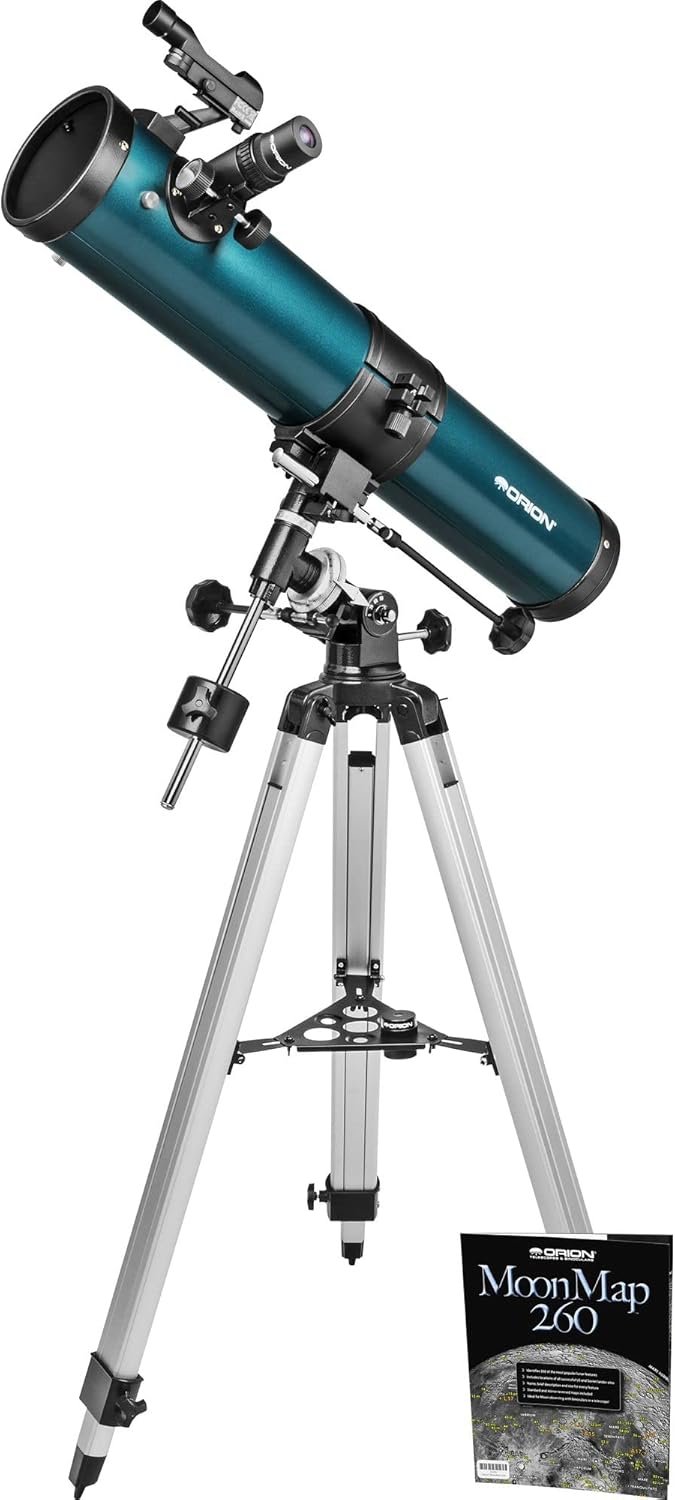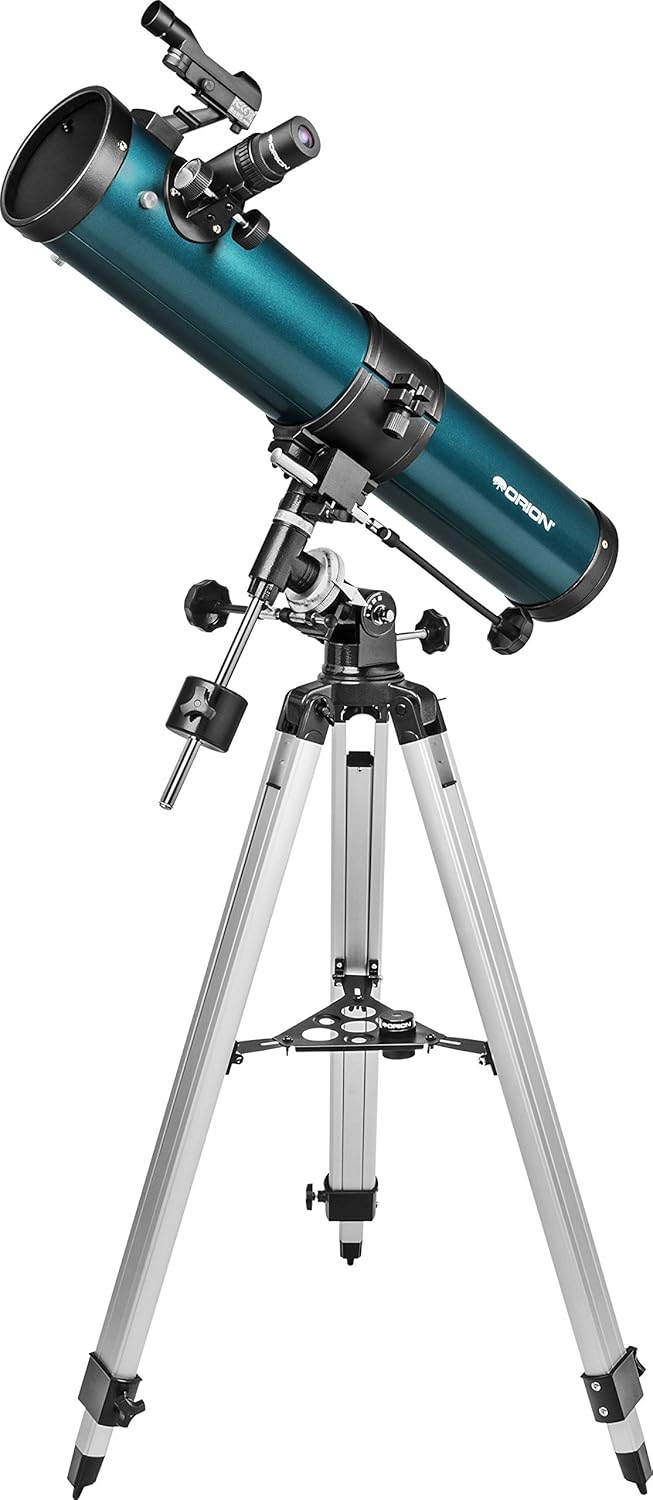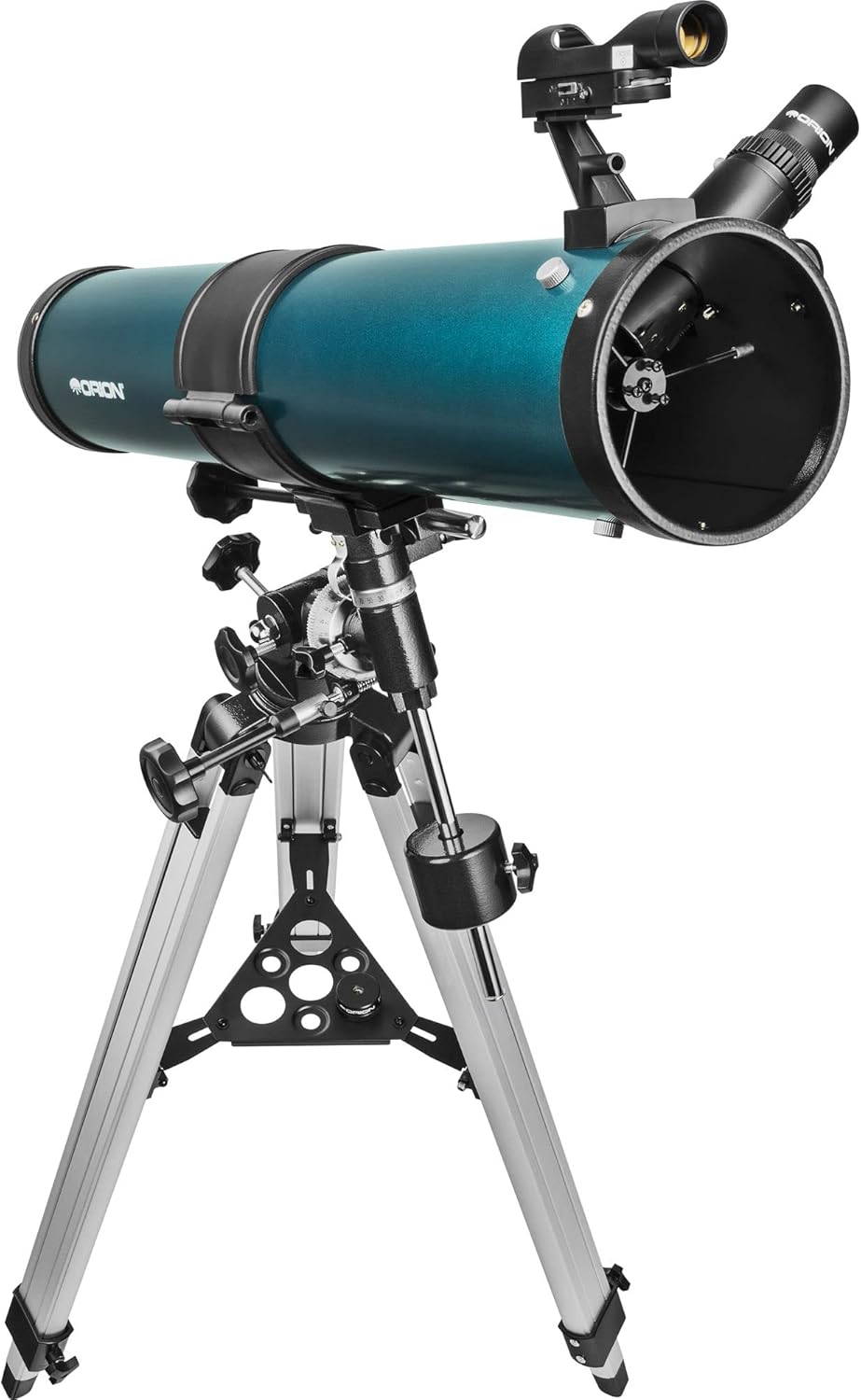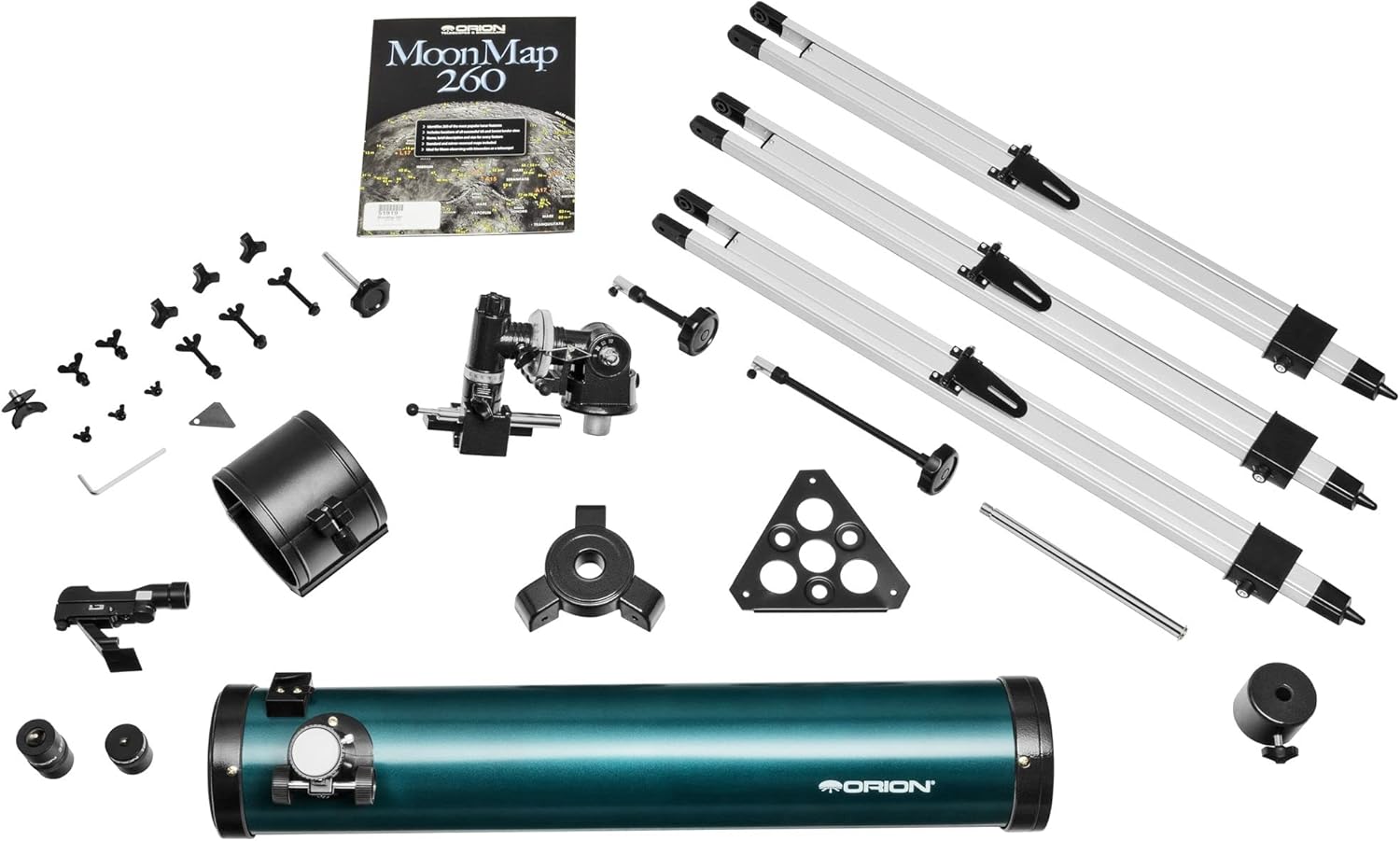Have you ever gazed up at the night sky, wondering what lies beyond the visible stars? If the starry night sky fascinates you and you’re eager to begin your journey into astronomy, the Orion SpaceProbe II 76mm Equatorial Reflector Telescope is here to ignite your curiosity and guide your exploration. This telescope is specially designed for beginners and families interested in experiencing the celestial wonders.
Overview of Orion SpaceProbe II 76mm Equatorial Reflector Telescope
The Orion SpaceProbe II is not just a telescope; it’s an invitation to discover the universe right from your backyard. It’s tailored specifically for beginner astronomers who are looking for a balance between quality and affordability. The SpaceProbe II provides a remarkable entry-level telescope with features that will enthrall adults and children alike as they stargaze at the moon, planets, and distant stars.
Specifications and Features
To better understand what sets this telescope apart, let’s dissect its features and what they mean to your stargazing experience.
| Feature | Description |
|---|---|
| Aperture | 76mm – ideal for clear views of celestial objects |
| Focal Length | 700mm, ensuring optimal viewing capabilities |
| Mount Type | EQ-1B equatorial mount, assists with manual tracking |
| Eyepieces | Two 1.25″ eyepieces: 25mm for 28x magnification and 10mm for 70x magnification |
| Additional Extras | Red-dot finder and MoonMap 260 |
The Orion SpaceProbe II features a 76mm aperture, which is excellent for beginners to observe the moon’s craters, Saturn’s rings, and Jupiter’s moons. The 700mm focal length ensures that your stargazing journey is detailed and fulfilling. You’ll see bright nebulas and star clusters with surprising clarity, all while the telescope maintains portability.
Easy Setup and Operation
One thing every beginner appreciates is simplicity in setup and operation. With its user-friendly design, the Orion SpaceProbe II ensures that you spend more time observing and less time struggling with assembly. The EQ-1B equatorial mount comes with straightforward instructions and requires no tools, making it easy to align with the night sky. This mount is particularly handy because it allows for smooth tracking of celestial objects. With slow-motion controls, you can follow the motion of stars across the sky effortlessly.
Viewing Experience
Your stargazing experience heavily relies on the quality of eyepieces. The Orion SpaceProbe II includes two coated eyepieces delivering different magnifications. The 25mm eyepiece gives a general wide-view magnification of 28x, perfect for scanning larger areas of the night sky. Meanwhile, the 10mm eyepiece provides a closer 70x magnification, ideal for those who want to focus on planetary details or the texture of the lunar surface.
The telescope’s red-dot finder is another excellent addition, helping you efficiently locate stars and planets. This ease in locating celestial objects allows both beginners and more seasoned stargazers to enjoy the experience without the pitfalls of advanced setups.

Deep Sky and Planetary Observation
Let’s talk about what you can actually see through the Orion SpaceProbe II. Have you ever wanted a close look at the moon’s surface, Saturn’s shimmering rings, or Jupiter’s dynamic cloud belts? The SpaceProbe II is equipped to deliver these sights with clarity. This telescope is perfect for observing the moon in all its captivating detail. You’ll see the crisp, dreamy lunar landscapes, the irregular surface dotted with craters, and the enchanting play of light and shadow on the surface.
However, the experience isn’t limited to just lunar observation. The telescope allows you to catch bright planets like Venus, Mars, Jupiter, and Saturn with satisfying detail. Saturn’s rings become discernible, allowing you to witness one of the most majestic features of our solar system.
For those nights when you want to go beyond planetary exploration, the Orion SpaceProbe II’s capability stretches to bright star clusters and nebulae. Whether it’s taking in the brilliant Orion Nebula or marveling at the Pleiades’ star wonder, there are countless wonders to uncover with this scope.
Tips for Optimal Viewing
To get the most out of your Orion SpaceProbe II, keep a few tips in mind:
-
Choose a Dark Location: Light pollution can greatly affect viewing quality. Try to take your telescope to a location away from city lights for a clearer picture.
-
Allow Your Telescope to Adapt: Before you start observing, let the telescope reach ambient temperature by leaving it outside for about 10-15 minutes. This reduces distortion from warm air inside the tube.
-
Be Patient and Steady: Many celestial objects appear small. Start with wide-angle eyepiece to locate, then revert to higher magnification.
-
Use the MoonMap 260: This handy map helps you identify craters and other features on the moon.

Building Interest in Astronomy for Beginners
The Orion SpaceProbe II 76mm Equatorial Reflector Telescope is indeed well-suited for engaging newcomers. By combining sturdy construction with user-friendly features, it’s gentle enough for novice hands to manage. The learning curve for adjusting and pointing the telescope is not steep, making it a family-friendly option to stimulate interest in astronomy.
Inspiring Future Astronomers
For families, inspiring a child’s interest in the universe can be life-changing. Imagine your children navigating the cosmos alongside you and asking enthusiastic and curious questions about what they’re observing. This telescope opens the door to learning outside the typical classroom and fosters a deeper appreciation for science and nature.
Astronomy Club and Community Engagement
Ownership of a telescope like the Orion SpaceProbe II can also open up social avenues. Joining local astronomy clubs or participating in observational community events becomes much more engaging when you can share lively discussions about your latest views through the telescope. It’s a way to share excitement and swap tips about different celestial events happening throughout the year.

Maintenance and Care for Longevity
Taking care of your Orion SpaceProbe II ensures longevity and optimal performance. Although robust, being gentle and meticulous with telescope care can significantly enhance its lifespan.
Cleaning and Storage
When not in use, store the telescope in a dry and dust-free place. If you’re planning on taking it outdoors, investing in a good quality case prevents accidental damage. And when cleaning lenses, avoid direct contact with fingerprints—use a soft brush or lens cloth, especially designed for optics.
Regular checks for dust build-up and gentle cleaning maintain optical quality. Avoid harsh cleaning agents as they can degrade the coatings painted on the lenses.
Regular Adjustments
Over time, factors like accidental bumps can lead to the misalignment of your telescope. Periodically checking and realigning ensures that your stargazing sessions are unobstructed by unnecessary image distortions. Learning how to collimate, or align the telescope mirrors, optimizes viewing clarity.

Final Thoughts
The Orion SpaceProbe II 76mm Equatorial Reflector Telescope is an inspiring tool that turns a casual interest in space into a genuine and accessible passion. For those just beginning their astronomical journey, it strikes the perfect balance of ease, functionality, and capability, all at a price point that doesn’t break the bank. The skies are waiting, full of mystery and delight. With the Orion SpaceProbe II by your side, stargazing evolves from an occasional hobby into a deeply rewarding pursuit full of endless discoveries.
Disclosure: As an Amazon Associate, I earn from qualifying purchases.


